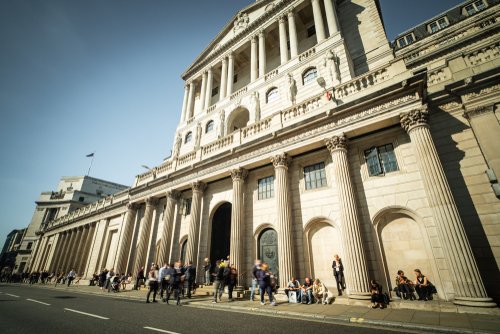Brussels (Brussels Morning) The UK is the first G7 member to raise interest rates since the start of the coronavirus crisis, the Bank of England (BoE) having increased rates on Thursday.
The US Federal Reserve System has been signalling plans to make a similar move next year, while the European Central Bank (ECB) is still maintaining its expansive policy, Reuters reported on Thursday.
This divergence reveals deep uncertainties about the effects of the spread of coronavirus on the global economy and management of inflation, which has been surging especially quickly in the US and in the UK.
ECB President Christine Lagarde pointed out at a recent press conference that the coronavirus crisis is affecting consumption in the eurozone and jeopardising economic growth.
“To cope with the current pandemic wave some countries have introduced tighter containment measures… this could delay the recovery… the pandemic is weighing on consumer and business confidence”, she observed.
Lagarde stressed the need “to maintain flexibility and optionality” by a gradual tapering of emergency measures, rather than by scrapping all support programmes at once.
Fed to tighten monetary policy
On Wednesday, the US Federal Reserve System announced plans to scrap its emergency bond-buying in Q1 of 2022 and presented a timetable for increasing interest rates.
Jerome Powell, head of the Federal Reserve System, stated that the US is on a course for full employment and strong economic growth in 2022, stressing that rising inflation presents a more pressing risk.
The BoE decided to up the benchmark rate on Thursday, from 0.1% to 0.25%, stressing that inflation would reach 6% in April next year, which is significantly above its target of 2%.
“The Committee continues to judge that there are two-sided risks around the inflation outlook in the medium term, but that some modest tightening of monetary policy over the forecast period is likely to be necessary to meet the 2% inflation target sustainably” the bank declared.
Norway’s Central Bank upped interest rates in September this year and continues to tighten its monetary policy, announcing further rate increases in the coming period.
The Bank of Japan is to announce policies later this week, which will likely be focused on a small reduction in corporate asset purchases, given the absence of consumer-level inflation.




